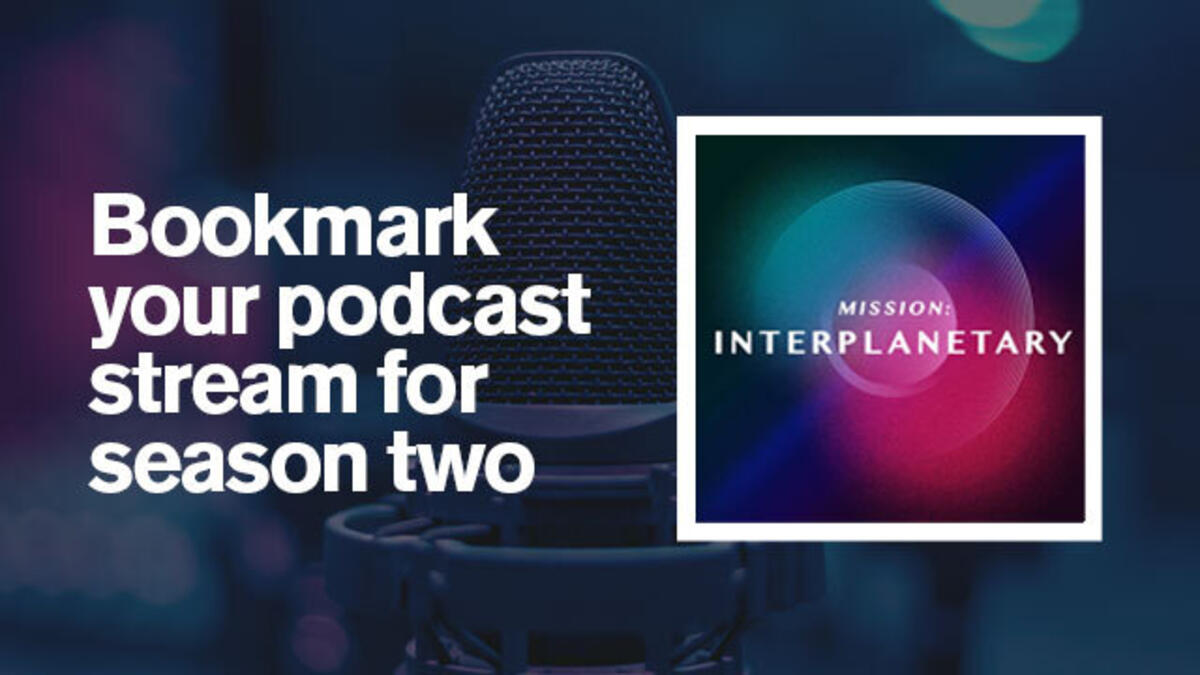Arizona State University's Interplanetary Initiative podcast, "Mission: Interplanetary," is coming back for season two on Tuesday, March 22.
Hosts Cady Coleman, ASU’s Global Explorer in Residence and a professor of practice in the School of Earth and Space Exploration, and Andrew Maynard, associate dean and professor in the School for the Future of Innovation in Society, are back behind the microphone.
Coleman is a veteran of two space shuttle flights and spent six months living and working onboard the International Space Station. Maynard is a scientist and the author of "Films From the Future: The Technology and Morality of Sci-Fi Movies" and "Future Rising: A Journey from the Past to the Edge of Tomorrow." Together, the duo are looking to build on the success of the first season of their podcast to reach even more listeners with their unique blend of commentary and conversation.
“Human spaceflight has undergone enormous changes, even over the past year," Coleman said. "We’ve been interviewing people who are leading these changes, and I’m excited to bring these wide-ranging conversations to our listeners.”
“I’ve been blown away by our guests this season and the insights they’ve brought to the podcast," Maynard said. "We’re at a pivotal point in the history of humans in space, and our conversations reflect this."
The podcast's producer and Associate Director of the Interplanetary Initiative Lance Gharavi is equally enthused.
“'Mission: Interplanetary' is based on the observation that humans will become an interplanetary species. On the podcast, we get to talk with people who are at the forefront of creating that future. Our focus is on the big questions and challenges facing us as we venture off our beautiful planet to live, work and play in our amazing solar system,” he said.
Season two's lineup of guests includes industry heavy-hitters from organizations like Blue Origin, NASA and MIT Media Lab. The first episode drops Tuesday, March 22, and a new episode will be released every Tuesday through May 10. You can listen wherever you get podcasts.
Season two's full line-up of episodes is as follows:
• March 22 — “Is space mining really viable?” with space industrialist, entrepreneur and engineer Chris Lewicki.
• March 29 — "What dangers will the first crewed mission to Mars face?" with Julie Robinson from NASA.
• April 5 — "How can space technologies help fight climate change?" with Dava Newman from MIT Media Lab.
• April 12 — "Planetary smackdown! Mars vs. Venus. Where should we invest?" with Tanya Harrison from Planet and Joe O’Rourke from ASU.
• April 19 — "How can we make space more accessible to disabled people? Part I," with Ann Kapusta from AstroAccess.
• April 26 — "How can we make space more accessible to disabled people? Part II," with Sina Bahram from AstroAccess.
• May 3 — "What will people do on the first private space station?" with Erika Wagner from Blue Origin and Jessy Kate Schingler from Open Lunar.
• May 10 — "Are we done searching for intelligent life?" with Jill Tarter from SETI Institute.
More Science and technology

Turning up the light: Plants, semiconductors and fuel production
What can plants and semiconductors teach us about fuel production?ASU's Gary Moore hopes to find out.With the aim of learning how…

ASU technical innovation enables more reliable and less expensive electricity
Growing demand for electricity is pushing the energy sector to innovate faster and deploy more resources to keep the lights on…

What do a spacecraft, a skeleton and an asteroid have in common? This ASU professor
NASA’s Lucy spacecraft will probe an asteroid as it flys by it on Sunday — one with a connection to the mission name.The asteroid…


